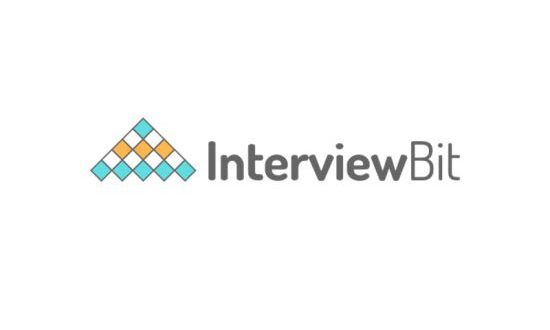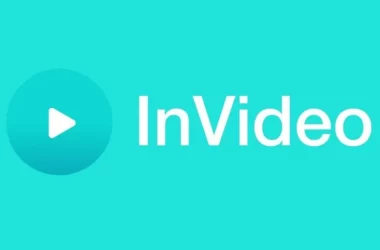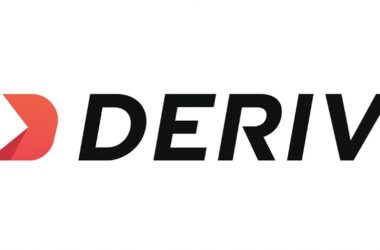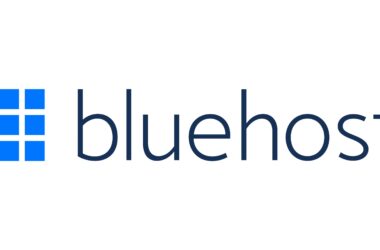Navigating the vast landscape of coding platforms is crucial for developers seeking an optimal learning experience. While HackerRank is a prominent player, its features and limitations propel the exploration of alternatives. This comprehensive guide unveils HackerRank’s intricacies, explores the necessity of seeking HackerRank alternatives, delves into commonly used substitutes, and outlines key factors to consider when choosing the perfect coding platform.
Exploring HackerRank: Features and Limitations Unveiled

As we delve into HackerRank’s intricacies, let’s uncover the features that empower developers and the limitations that may pose challenges. Understanding these aspects sets the stage for a comprehensive exploration of HackerRank alternatives.
Features that Empower Developers:
- Diverse Problem Sets: HackerRank boasts an extensive collection of coding challenges spanning various difficulty levels, programming languages, and domains, providing a versatile learning experience.
- Real-world Projects: Engage in hands-on coding projects that mirror real-world scenarios, allowing developers to apply their skills in practical settings and gain valuable experience.
- Adaptive Scoring System: The platform’s adaptive scoring system dynamically adjusts to a user’s skill level, ensuring personalized challenges that match their proficiency and foster continuous improvement.
- Performance Analytics: Detailed performance analytics provide developers with insights into their strengths and weaknesses, facilitating targeted skill enhancement and progress tracking.
- Collaborative Coding: Collaborative coding features foster a sense of community and teamwork, enabling users to solve challenges together, share knowledge, and learn from each other.
Limitations to Navigate:
- Interface Complexity: Some users, especially newcomers, find the platform’s interface intricate, leading to a learning curve that may impede seamless navigation and engagement.
- Search and Discovery Challenges: Locating specific coding problems can be challenging, impacting users’ efficiency in finding exercises that align with their learning goals.
- Competitive Environment: The highly competitive nature of the community may create an intimidating atmosphere for beginners, potentially hindering their confidence and learning journey.
- Limited Language Support: While supporting a range of programming languages, the depth of support for less mainstream languages may be limited, affecting some users’ preferences.
- Resource Overload: The extensive array of challenges and features might overwhelm certain users, making it crucial for individuals to navigate the platform to meet their specific needs efficiently
What Sets HackerRank Apart?
HackerRank distinguishes itself with a multifaceted approach to coding education. Its extensive library of challenges caters to varying skill levels and programming languages, offering a diverse learning experience. The platform’s adaptive scoring system tailors challenges to individual proficiency, ensuring targeted skill enhancement. The collaborative coding feature fosters community, facilitating teamwork and knowledge sharing. Moreover, HackerRank’s emphasis on real-world projects and interview preparation equips users for practical scenarios. This unique combination of features sets HackerRank apart, making it a comprehensive and dynamic hub for developers seeking a holistic coding education.
Necessity of Exploring HackerRank Alternatives: A Developer’s Perspective

As developers progress in their coding journey, exploring HackerRank alternatives becomes imperative. The dynamic nature of skill development and the evolving needs of individuals prompt the need to delve into alternative platforms. Here are four fundamental aspects that drive developers to seek HackerRank alternative coding environments:
1. Diverse Challenge Preferences
While offering a comprehensive set of challenges, HackerRank may not cover the full spectrum of a developer’s interests or aspirations. As coding enthusiasts diversify their skills, they seek challenges that align with specific domains, industries, or coding paradigms. Exploring HackerRank alternatives opens doors to platforms that cater to these nuanced preferences, providing a richer and more tailored learning experience.
2. Learning Approach and Style
Learning is a personal journey; developers often resonate with specific approaches or styles. While HackerRank excels in its methodology, some individuals may prefer interactive tutorials, others gamified challenges, and some may lean towards practical, real-world projects. Exploring HackerRank alternatives allows developers to align with platforms that resonate with their preferred learning style, fostering a more engaging and valuable educational experience.
3. Interface and User Experience Considerations
User interface preferences vary widely among developers. While some may find HackerRank’s interface intuitive, others might seek a more user-friendly or visually appealing platform. The exploration of HackerRank alternatives is driven by the desire for an environment that aligns seamlessly with individual interface preferences. A well-designed and intuitive interface enhances the overall user experience, making learning more enjoyable and efficient.
4. Community Dynamics and Support
HackerRank’s community is known for its competitive nature, which can motivate some but overwhelm others, especially those starting their coding journey. Developers may seek HackerRank alternatives that offer a more supportive and collaborative community. Platforms with mentorship programs, discussion forums, and a nurturing environment become attractive options for those who value a sense of camaraderie and shared learning experiences.
Commonly Used HackerRank Alternatives For Coding Enthusiasts

In the dynamic and ever-evolving world of coding and programming, developers often seek HackerRank as an alternative platform. This exploration is driven by a desire to diversify coding practices, access new and challenging problems, and find platforms that resonate with unique learning styles. Here’s a detailed exploration of 10 commonly used HackerRank alternatives, each offering a distinctive approach to coding education:
1. LeetCode
LeetCode emerges as a versatile platform renowned for its extensive collection of coding challenges and robust interview preparation resources. Regardless of their proficiency level, developers benefit from LeetCode’s user-friendly interface, detailed solutions, and an active community that fosters collaborative learning. With challenges spanning algorithmic problem-solving to system design, LeetCode caters to a broad spectrum of coding enthusiasts.
2. CodeSignal
CodeSignal is a comprehensive platform for assessing coding skills through real-world projects and adaptive assessments. Whether you’re a beginner seeking foundational challenges or an experienced developer preparing for interviews, CodeSignal offers a well-rounded learning experience. Its focus on practical application and skill mastery makes it a valuable HackerRank alternative for those looking to bridge the gap between theory and real-world coding scenarios.
3. Codewars
Codewars injects an element of gamification into coding challenges, presenting them as “kata” – small, focused exercises designed to improve specific skills. The platform’s community-driven content and ranking system creates an engaging environment for developers seeking to solve problems and compete and collaborate with peers worldwide. Codewars’ unique approach adds a layer of excitement to the learning process, making it an excellent choice for those who thrive on a competitive edge.
4. GeeksforGeeks
GeeksforGeeks stands out as a comprehensive knowledge hub, offering a vast repository of coding articles, tutorials, and challenges. Covering an extensive range of programming languages and topics, GeeksforGeeks serves as an invaluable resource for developers looking to deepen their understanding of algorithms, data structures, and various coding paradigms. Its structured content and detailed explanations make it a go-to platform for enhancing coding skills.
5. Codecademy
Codecademy takes an interactive, hands-on approach to coding education, making it particularly appealing to beginners. With guided projects, quizzes, and step-by-step tutorials, Codecademy provides a structured and immersive learning experience. The platform’s emphasis on practical application ensures that learners understand coding concepts and gain the skills to implement them in real-world scenarios.
6. Exercism
Exercism places a strong emphasis on community-driven learning through code reviews and mentorship. Its open-source nature encourages collaboration, with developers reviewing each other’s code and providing constructive feedback. Exercism goes beyond mere problem-solving, fostering a supportive environment where learners can refine their coding skills and learn from the experiences of their peers.
7. TopCoder
TopCoder is globally recognized for its competitive programming challenges and algorithmic contests. Developers participate in global competitions, where problem-solving and algorithmic thinking are taken to the international stage. TopCoder sharpens coding skills and provides a platform for individuals to showcase their talents globally, attracting seasoned developers seeking challenges at the highest level.
8. HackerEarth
HackerEarth offers various coding challenges, hackathons, and hiring assessments. Whether you are an individual learner looking to test your skills or a business seeking top talent, HackerEarth provides a versatile environment. Its platform facilitates skill evaluation through coding competitions, making it an excellent choice for personal development and professional growth.
9. Coderbyte
Coderbyte curates coding challenges and interview preparation materials with a strong emphasis on practical problem-solving and real-world applications. The platform’s selection of challenges is designed to prepare developers for technical interviews, making it a valuable resource for those navigating the competitive landscape of job applications. Coderbyte’s focus on real-world scenarios ensures that developers have the skills needed in professional settings.
10. InterviewBit
InterviewBit specializes in interview preparation for software engineering roles. With a structured curriculum and mock interviews it equips candidates with the skills needed to excel in technical interviews. InterviewBit’s focused approach, tailored to the demands of the job market, makes it an ideal platform for developers seeking to hone their interview skills and secure coveted positions in the tech industry.
Factors To Consider While Choosing the Perfect HackerRank Alternative

Now that we’ve uncovered HackerRank’s nuances, let’s transition to the essential considerations when navigating through potential HackerRank alternatives. Examining these factors ensures a well-informed decision in selecting the ideal coding platform that aligns with individual preferences and learning goals.
1. Diversity of Challenges
When evaluating coding platforms, the diversity of challenges is crucial in enhancing the learning experience. A platform with various challenges spanning different difficulty levels, programming languages, and problem-solving techniques enables developers to broaden their skill set and explore new domains. Moreover, access to diverse challenges ensures that developers can continuously challenge themselves, preventing stagnation and fostering growth in their coding abilities.
2. Learning Approach
The learning approach adopted by a coding platform significantly impacts the effectiveness of the educational experience. Some platforms may offer interactive tutorials, guiding users through step-by-step coding concepts, while others may focus on gamified challenges or real-world projects. Developers should consider their preferred learning style and choose a platform that aligns with it. Whether it’s hands-on projects, interactive exercises, or collaborative learning, selecting a platform that resonates with one’s learning approach enhances engagement and facilitates knowledge retention.
3. User Interface and Experience
A well-designed user interface (UI) and user experience (UX) provide a seamless and enjoyable learning journey. A platform with an intuitive interface, straightforward navigation, and visually appealing design enhances usability and minimizes friction, allowing developers to focus on learning without distractions. Evaluating the UI/UX of potential HackerRank alternatives ensures that developers can engage with the platform effortlessly, maximizing their productivity and satisfaction.
4. Community and Support
The presence of an active and supportive community can greatly enhance the learning experience on a coding platform. A vibrant community provides opportunities for collaboration, knowledge sharing, and peer support, fostering a sense of belonging and camaraderie among developers. HackerRank alternative platforms offering mentorship programs, discussion forums, and support resources empower developers to seek guidance, share insights, and overcome challenges effectively. Prioritizing platforms with a thriving community ensures that developers have access to valuable networking opportunities and receive the support they need to succeed in their coding journey.
5. Performance Analytics
Effective performance analytics are essential for tracking progress, identifying areas for improvement, and measuring proficiency in coding skills. HackerRank alternative platforms that offer detailed performance metrics, such as completion rates, time taken to solve challenges, and accuracy scores, enable developers to objectively assess their strengths and weaknesses. By analyzing performance data, developers can set meaningful goals, track their development over time, and make informed decisions about their learning strategies. Prioritizing platforms with robust performance analytics ensures that developers can optimize their learning experience and achieve their coding goals more effectively.
Conclusion
In the ever-expanding universe of coding platforms, the quest for the perfect learning environment becomes a personalized journey for developers. HackerRank, with its diverse problem sets, real-world projects, and adaptive scoring system, stands as a formidable player. However, as developers navigate this dynamic landscape, HackerRank alternatives offer tailored experiences to meet individual aspirations and preferences.
Exploring HackerRank alternatives becomes imperative, driven by the need for diverse challenges, varied learning approaches, user-friendly interfaces, supportive communities, and effective performance analytics. Each HackerRank alternative, from LeetCode’s comprehensive challenges to InterviewBit’s interview-focused approach, provides a unique avenue for skill development.
Ultimately, the decision to choose the ideal platform hinges on factors like personal learning style, the desire for a collaborative community, and the need for nuanced challenges. By understanding the strengths and limitations of HackerRank alternatives, developers empower themselves to craft a learning journey that aligns seamlessly with their goals, ensuring a fulfilling and impactful coding education.









